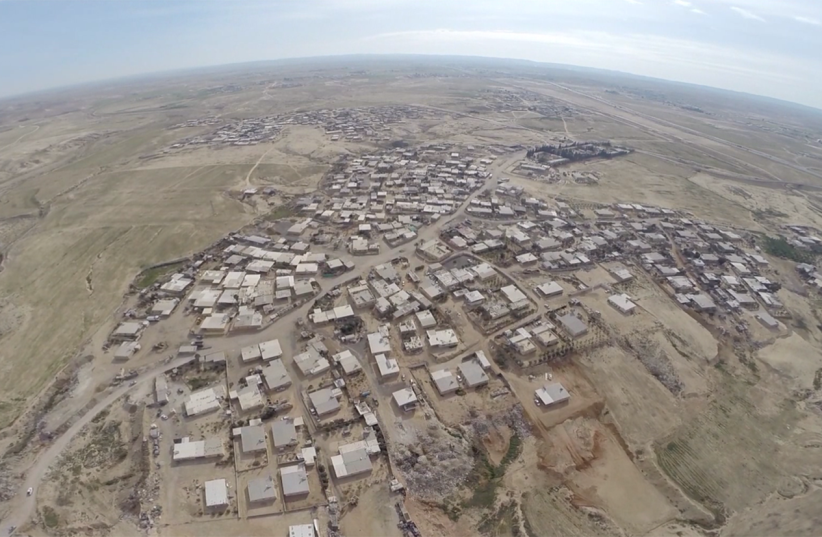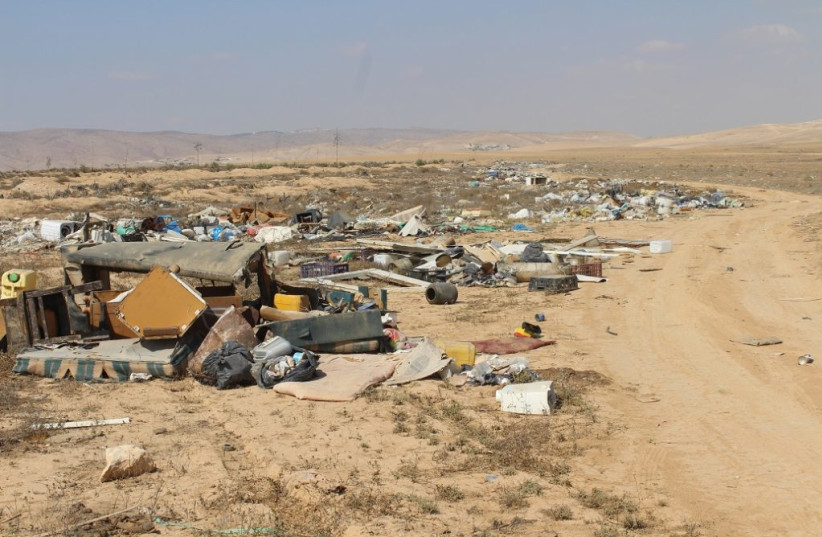“Nineteen arrested in large brawl at Soroka hospital in Beersheba,” a headline read in November. A fight broke out between two Bedouin families from Rahat, about 20 km. north of Beersheba. The reason it made the news was the location – brawls happen all the time.
There are thousands of Bedouin living in the Negev; their story must extend deeper than crime-ridden headlines. So, who are the Bedouin of the South?
The clash took place in one of the parking lots at Soroka-University Medical Center in Beersheba, with two people being injured. By the end of a long night, which included gunshots and stone-throwing, 19 people were arrested.
Beersheba Deputy Mayor Shimon Tuval said at the time that the situation was madness. “Not only did we lose Beersheba, we lost the whole country. Shots in a hospital are a redline that cannot be crossed.”
Hospitals are not a place for incidents like these and are not equipped to deal with them, Dr. Shlomi Kodesh, director of Soroka, said at the time.

The Beersheba Municipality did not respond to a request for comment for this article.
<br>Soroka
When the incident in Soroka occurred, it was in the context of a string of attacks happening inside or near hospital spaces, which are supposed to be safe and immune.
Dr. Zeev Feldman, chairman of the Association of Public Health Doctors in Israel and acting chairman of the Israeli Medical Association, explained to The Jerusalem Post at the time that hospitals are merely a microcosm of society.
<br>‘Lawlessness’ in the Negev
The lack of governance in the Negev is an ongoing issue, and Prime Minister Naftali Bennett said at the time: “We are dealing in an orderly manner with problems that we have already become accustomed to having nothing to do with, that are chronic problems that are used to being pushed off.”
“If the State of Israel does not protect the land on which it stands, it will cease to exist,” Naomi Linder Kahn, director of the International Division at Regavim, told the Magazine.
Regavim is an NGO that describes itself as “committed to protecting Israel’s land resources.”
Land, Kahn explained, is the most basic resource of a state. And the organization, in the 16 years since its founding, has found that Israel fails to protect it in the Negev.
According to Regavim, lawlessness leads to abuse in land use, which is significant because the Negev comprises more than 60% of the landmass of Israel. “The land is being chewed up at an incredibly alarming rate by illegal Bedouin construction,” Kahn said.
Regavim warned that “if we continue on the trajectory we are on right now, we will lose the Negev.”
<br>A story within a story
“There’s an entire culture here: Towns, settlements, MKs and even the police play a small part in this story,” Israel Police said. “Police [play the part of dealing with the] criminal stories, but the story here in the Negev is about cultures. Everyone who lives in the South engages with this dialogue every day.
“To understand what the Bedouin do, you need to understand their culture. Police are a tiny part in this giant story of Bedouin settlement in the Negev; talking about [how the] police [should intervene] gives good headlines, but it is not the story.”
In November, the Knesset’s Research and Information Center published a staggering report showing that the highest crime rates in the country are in the South.
“Our worst fear is that the State of Israel created a state within a state. They don’t pay taxes, they don’t have proper addresses; people are living off the grid and are not accountable under the law,” said Kahn.
On a tour in the area in December, Bennett proclaimed: “The law of Beersheba and Rahat is like the law of Tel Aviv. We will continue to act until we restore the sense of security to the residents of the South.”
The Bedouin community is on the lowest socioeconomic rung in Israel, Kahn said, with there being gaps in education and in infrastructure. “These are things they have a legal right to as citizens of Israel, but the money that the government invests in the Bedouin sector is getting lost along the way.”
When Bennett went south, he met with Beersheba Mayor Ruvik Danilovich, who delivered a clear message: Stronger governance is needed in the Negev to begin to regulate Bedouin settlements. Danilovich was one of the only town leaders Bennett met with on his tour, catching flak for only going to an observation point that overlooks Rahat and not entering the city itself.
Faiz Abu Sahiban, mayor of the largest Bedouin city and the second-largest Arab city in Israel, called the trip an insult. “Rahat is a city well inside the borders of Israel, not outside of it. The itinerary of the tour is problematic and disgusting in how it treats a city that is in the heart of the state as a threat.”

What would happen if the state intervenes?
“[We would have] a completely protected minority that can live fully under the law and protect their own culture,” Regavim said.
In Regavim’s eyes, there are two steps that are necessary to take to ensure stability in the region: Putting people on the map – making sure that everyone is registered to a real address, for accountability and tracking – and resolving land ownership disputes.
In October, Bennett’s government was threatened over a bill introduced by Ra’am (United Arab List), later passing in the plenum as the electricity law. The law allows thousands of illegally built homes to be hooked up to the national electricity grid.
“The government woke up and realized that 300,000 Bedouin are living here [without proper infrastructure] and that this is a ticking time bomb. So, the government started to change its tune,” the police said.
Beersheba is the fastest growing city in Israel, but it can’t grow because of the illegal encampments surrounding it. If that is the case, “we’re finished,” Regavim’s Kahn said.
According to the Israel Police, a solution could be found by taking the right approach in the dispute between the two cultures – Western-Israeli and Bedouin.
“Anyone who tries to understand the Bedouin culture with Western eyes will fail,” it said.■
